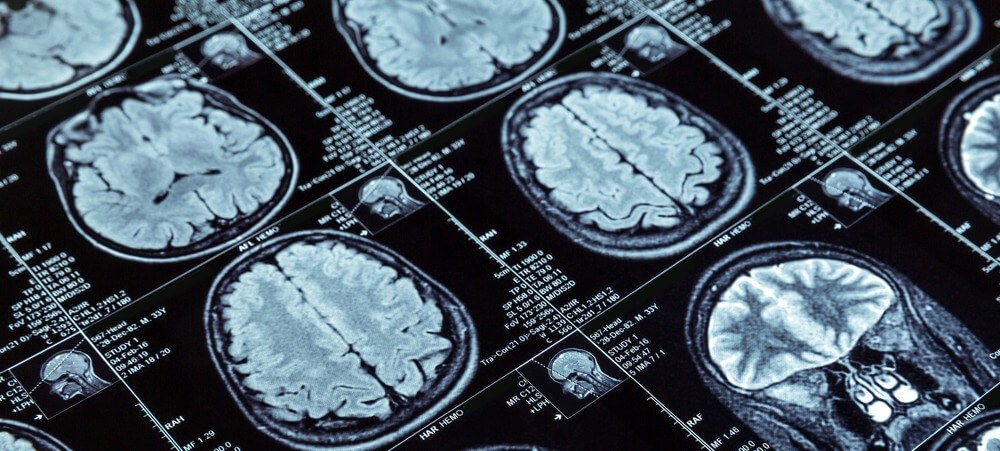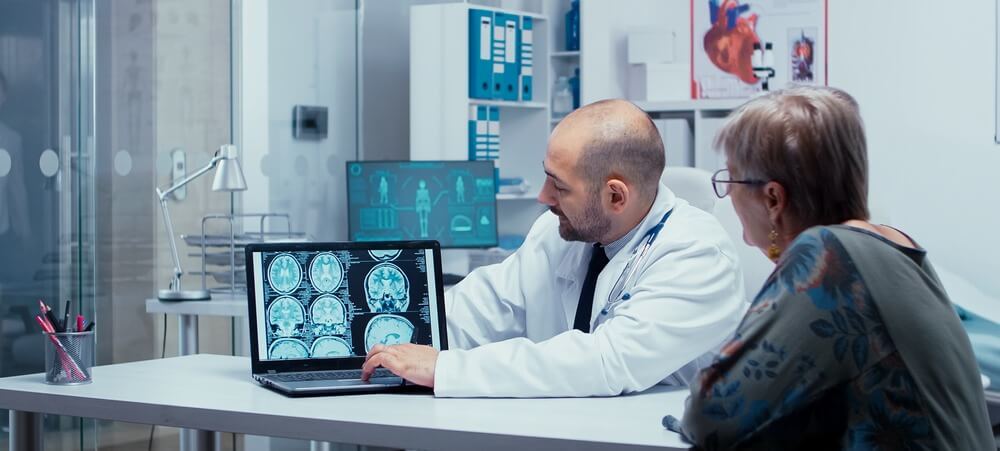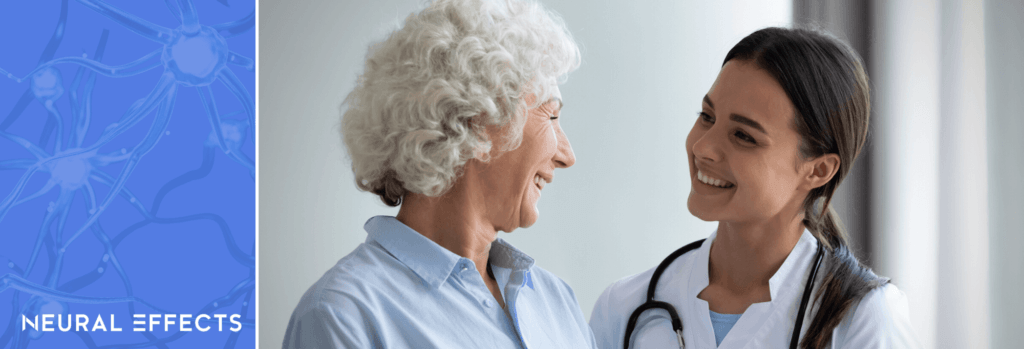When you find yourself (or a loved one) struggling to remember what used to be easy or to find the right word in a conversation, you might wonder if it’s time to seek a dementia evaluation. While not every sign of cognitive decline indicates dementia, it’s a good idea to get checked out.
It may take weeks or even months to get a diagnosis, and it will likely involve multiple appointments with different doctors, but it’s important to start as soon as possible.
Diagnosing dementia is not easy, particularly if you’re in the early stages. There isn’t a definitive test, and the symptoms can be very similar to those of other common conditions, such as depression, stress, infections, side effects from medication, and even vitamin deficiencies. That’s why it’s so important to get evaluated and receive (or rule out) an official diagnosis.
If your doctor does diagnose you with dementia, an early diagnosis can help you and your family understand what to expect and what you can do to manage cognitive changes. It also enables you to plan for the future and get the maximum benefit from available treatment options.
At Neural Effects, we offer evaluation and therapy for patients experiencing symptoms that may be caused by dementia. If it is dementia, we offer a research-based combination of physical exercise and cognitive activities — the best way to delay the progression of symptoms and increase the chances of patients leading happy and fulfilling lives for as long as possible.
In this article, we follow the journey towards a dementia diagnosis, including the initial consultation and all the tests and exams you may need during the process. If you’re looking for a good provider, look for someone who can offer the breadth of testing and referrals needed to follow a process similar to what we’ve outlined:
- What is dementia?
- What happens during the initial evaluation?
- What kind of specialists are involved in diagnosing dementia?
- What further tests are needed?
- What can you do after a diagnosis?
Neural Effects uses the latest evidence-based techniques to stimulate the areas of your brain that need the most help. We are located in Provo, Utah, and serve anyone in Salt Lake City or the Utah valley area. We are in network for most types of medical insurance. Schedule your evaluation today.
What Is Dementia?

Dementia is not a single disease. It’s a general term that covers a wide range of medical conditions that affect brain function. People living with dementia will experience a decline in their cognitive abilities, affecting memory, language, executive function, attention, and social cognition.
Patients can experience dementia in a variety of ways:
- By becoming more forgetful (more than expected for age)
- By feeling confused about simple tasks
- By finding it hard to concentrate
- By struggling to find the right word in conversations
- By having difficulty judging distances and seeing objects properly (not caused by poor vision)
- By feeling confused about the day or month
- By getting lost in familiar places
- By feeling anxious and stressed all the time
There are more than 200 types of dementia with different mechanisms to explain disease progression. However, they all have one aspect in common: Eventually, the disease will kill nerve cells and have an impact on brain function.
The most common form of dementia is Alzheimer’s disease, which accounts for up to 80% of cases. This condition is characterized by a build-up of two proteins, called plaques (beta-amyloid) and tangles (tau), between or within nerve cells, respectively. As the disease progresses, this build-up of proteins spreads and kills more and more brain cells.
The second most common type is vascular dementia, which is caused by microscopic bleeding and damage to blood vessels in the brain. As a consequence, blood can’t reach the brain cells and they eventually die.
About 1 in 10 people with dementia are diagnosed with Lewy body dementia. In this disease, tiny aggregations of protein called Lewy bodies (made of alpha-synuclein, tau, and ubiquitin) start to accumulate inside nerve cells and eventually suffocate them.
Frontotemporal dementia is less common in older adults, with most cases diagnosed in patients aged 45-65. Patients are diagnosed with this condition if it affects mainly the frontal and temporal lobes in the brain, causing changes in behavior and personality along with language difficulties.
To be diagnosed as dementia, this decline must be severe enough to impact on daily life. The problems have to be substantial, affecting how the person manages normal activities, such as work responsibilities and family commitments.
Sadly, there is no cure for dementia. It is progressive, meaning symptoms will be mild at first, but will get gradually worse. A prompt evaluation and diagnosis gives patients and their caregivers time to find ways to delay progression of the disease and maintain quality of life for as long as possible.
What an Initial Evaluation of Dementia Involves

Most patients begin their journey by consulting their primary care physician, although some go straight to a neurologist. During the initial consultation, your doctor (or other healthcare professional) will most likely start by asking when symptoms started and how they’re affecting daily living. They will also review your (or your loved one’s) medical history and check if existing conditions — such as diabetes, high blood pressure, or heart disease — are being properly managed.They will ask questions regarding medical conditions affecting other family members, including if there are cases of dementia or other relevant conditions.
If your clinician is concerned about dementia, he or she will use one or more of these quick assessment toolsto decide if you need to be referred to a specialist. Some of these tests include:
- Verbal fluency test: The doctor will give you 60 seconds to name as many items as possible from a specific category, such as “animals” or “words beginning with the letter S.” This may seem a simple task, but it needs multiple cognitive processes, including accessing the knowledge to answer the question and remembering the words already used to avoid repetition.
- Mini-cog: With the Mini-Cognitive Assessment Instrument, you’ll be asked to memorize three unrelated words, then to draw a clock with a specific time, and finally to recall the three original words. This tests short-term memory to remember the words, as well as visual memory and abstract thinking to know how to draw a clock.
- General practitioner assessment of cognition: This is a more detailed version of the mini-cog. You will have to memorize an address, know the date, draw a clock, discuss a current event, and finally, recall the original address. It should only take a few minutes to complete, but doctors know that patients who take longer are more likely to have cognitive problems.
- Ascertain dementia 8-item informant questionnaire: During this test, you’ll be asked eight direct questions about your symptoms, including if you’re having trouble remembering appointments or if you struggle with memory loss. Your doctor may ask a relative to answer the questionnaire, as they’re in a better position to notice subtle changes.
After the assessment, your doctor will explain the results and discuss what to do next. It’s unlikely that they’ll be able to make a diagnosis at this stage. Even if they tentatively believe it is dementia, you will still need further examinations to identify the type of dementia you have.
The Next Step: Referral to a Specialist

If there are any concerns about the results of the initial evaluation, your doctor will refer you to a specialist for further examination. These specialists are more experienced with dementia and will know what type of additional examination you need, such as a brain scan.
There are several types of doctors who specialize in dementia:
- Geriatricians specialize in conditions experienced by people over 65, including dementia. You may be referred to a geriatrician to check if your symptoms are due to a condition other than dementia, like nutritional deficiencies or side effects from medication.
- Geriatric psychiatrists specialize in the mental health of older patients. You may need a psychiatrist if you’re suffering from depression and anxiety, whether or not it’s caused by dementia. You may also be referred to a neuropsychologist.
- Behavioral neurologists specialize in performing detailed neurological and cognitive exams, which are essential in a dementia diagnosis. These neurology specialists may order a brain scan or further examinations, if needed.
- Treatment clinics, like Neural Effects, are another possible route to treatment. We specialize in evaluating and treating patients with mild cognitive impairment and dementia (see further details below). You don’t need to be referred to us; contact us to schedule an appointment.
What Further Testing Can Involve

At this stage, patients must undergo a series of laboratory tests and examinations, including brain scans and cognitive tests, to either confirm or rule out a diagnosis of dementia.
These include:
- Blood samples
- Psychiatric evaluation
- Brain scans
- Cognitive tests
- Neuropsychological testing
Blood Samples
While changes in the brain caused by dementia are permanent, some cognitive issues may be exacerbated if the patient also suffers from other conditions, such as depression or nutritional deficiencies. In most cases, symptoms improve once these diseases are treated.
For this reason, it’s recommended that assessment for patients with suspected dementia should include blood tests to rule out these conditions, including:
- Liver function
- Kidney function
- Thyroid function
- Hemoglobin A1c (to check for diabetes)
- Vitamin B12 and folate levels
- Iron levels (to check for anemia)
Further tests, such as drug and alcohol (toxicology screening test) or cerebrospinal fluid analysis (to rule out specific infections that can affect the brain) may be done based on the patient’s medical history, family history or results from previous tests.
Psychiatric Evaluation
Dementia and depression have many symptoms in common in elderly patients, including changes in mood, inability to concentrate, and apathy. As such, screening for depression and other mental health disorders is part of the assessment for dementia.
The standard test is called the Geriatric Depression Scale (GDS-15). This involves a series of 15 yes/no questions, including, “Do you feel that your life is empty?”, “Do you feel your situation is hopeless?”, and ‘“Do you think it’s wonderful to be alive?”
Brain Scans
Brain imaging is a useful tool to diagnose some types of dementia, but the results need to be considered in combination with other exams. For example, a brain scan can detect brain shrinkage associated with Alzheimer’s disease, but a normal scan without any abnormalities does not necessarily indicate that the patient does not suffer from dementia. Signs of early dementia are unlikely to show up in a scan.
These scans are also used to rule out other conditions that may cause dementia-like symptoms but need a different treatment. Brain imaging can detect tumors, evidence of strokes, or a buildup of fluid in the brain.
The most common imaging methods include a CT or an MRI scan. Other brain scans, such as a PET scan, may be performed if the initial exams are inconclusive.
A PET scan provides images of brain activity based on oxygen consumption and blood flow, which can help distinguish between different types of dementia, including Alzheimer’s disease, vascular dementia, or dementia with Lewy bodies.
Cognitive Tests

Patients who show cognitive decline during the initial examination and cognitive screening need to be evaluated further to assess how much their brain function is impaired.
There are many different tests designed to test cognitive function and memory problems, including:
- Mini-Mental State Examination (MMSE): The MMSE is one of the most common cognitive tests used worldwide. You’ll be asked a series of questions designed to assess a variety of mental skills, including language, attention and memory. This test should take 5-10 minutes, but patients with cognitive impairment usually take much longer. It’s not sensitive enough to detect patients with mild cognitive impairment or early stages of dementia.
- Montreal Cognitive Assessment (MoCA): This test includes a section similar to the MMSE to test short-term memory, executive function, language, abstract skills, and attention. Unlike the MMSE, the MoCA also asks you to draw a clock that reads a specific time (see Mini-cog test described earlier). This exam is more sensitive than MMSE and can be used to diagnose patients with mild cognitive impairment.
- Saint Louis University Mental Status Exam (SLUMS): This exam consists of 11 questions covering several aspects of cognition, such as orientation, memory, recognition of geometric figures, and the clock drawing test.
Neuropsychological Testing at Neural Effects
A neuropsychological evaluation can measure cognitive changes and how well a person’s brain is working. We use this exam to detect changes in the brain caused by a concussion, but it can also be helpful to evaluate patients with dementia.
The mental functions tested include:
- Reading and comprehension
- Language skills
- Attention and concentration
- Processing speed
- Short and long term memory
- Reasoning
- Executive functions used to organize and plan, manage time, problem solve, and multi-task, among others
- Visual skills
- Dexterity and a physical examination
- Mood and personality
In practical terms, the tests involve writing or drawing, solving puzzles, and answering direct questions. Often patients find some questions very easy and others more difficult, depending on what areas of the brain are affected. All patients must complete this neuropsychological assessment, even if they come to us with a diagnosis of dementia from their doctor.
Getting a Diagnosis

Once you’ve completed all the tests needed, your doctor may be ready to give you a diagnosis. We recommend bringing someone you trust, like a partner, a close friend, or a care provider to this meeting.
It’s not an easy diagnosis to receive, but you should expect your doctor to be honest with you. If you find that they’re speaking too fast or it’s too complicated, ask them to slow down and explain in a different way. It can be a lot to process in a short period of time.
If you’ve completed the assessment at Neural Effects, our therapist will write a report summarizing the results, including which areas are most affected, and then meet with you and your family to discuss the best way forward.
What to Do after a Diagnosis

At the moment, there is no cure for dementia. There are a few prescription drugs available, including cholinesterase inhibitors and memantine, but these only slow down the progression of the disease temporarily.
Another option to delay symptom progression is to undergo therapy at Neural Effects. We offer a combination of physical exercise and cognitive activities, which has been shown to slow down cognitive decline more effectively than just exercise or cognitive therapy in isolation in dementia patients.
The type of therapies that we use with our patients depends on the problems identified during the neuropsychological exam. For example, if you’re struggling with language skills, our therapists will offer you a variety of word games. At the end of each session, you will be given some “homework” exercises to complete at home. This is an important part of the treatment, and it will help delay the progression of the disease as much as possible.
You can continue to come to us for as long as you want. Some patients bring a relative with them to learn the exercises, with the aim to eventually do them exclusively at home. Others prefer to see our therapists in person and opt for regular sessions.
You can also follow the recommendations in our post: 12 Ways to Treat Dementia at Home Naturally
If you’d like to visit our clinic for a thorough evaluation, therapy, or both, contact us to schedule an appointment.
